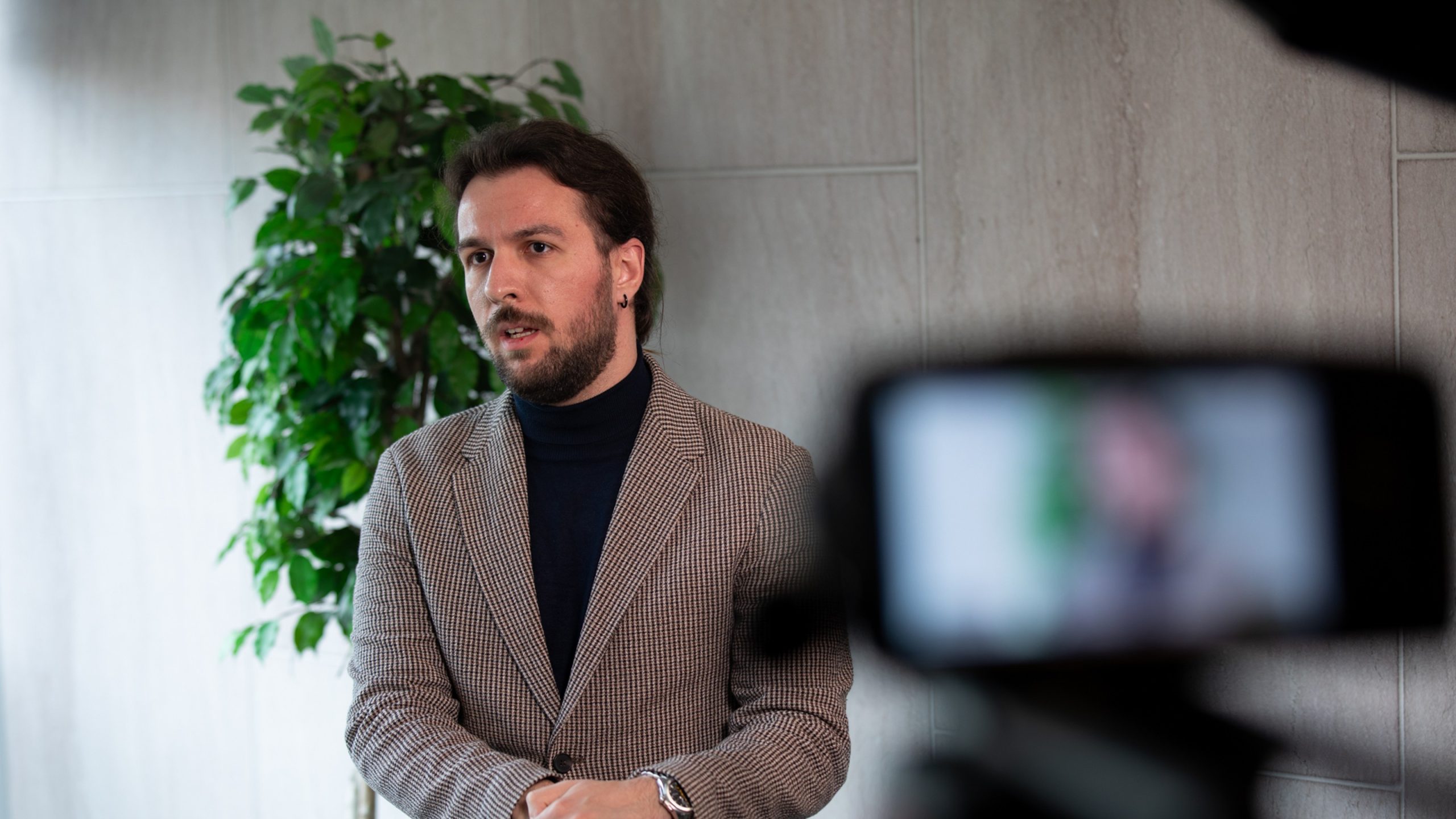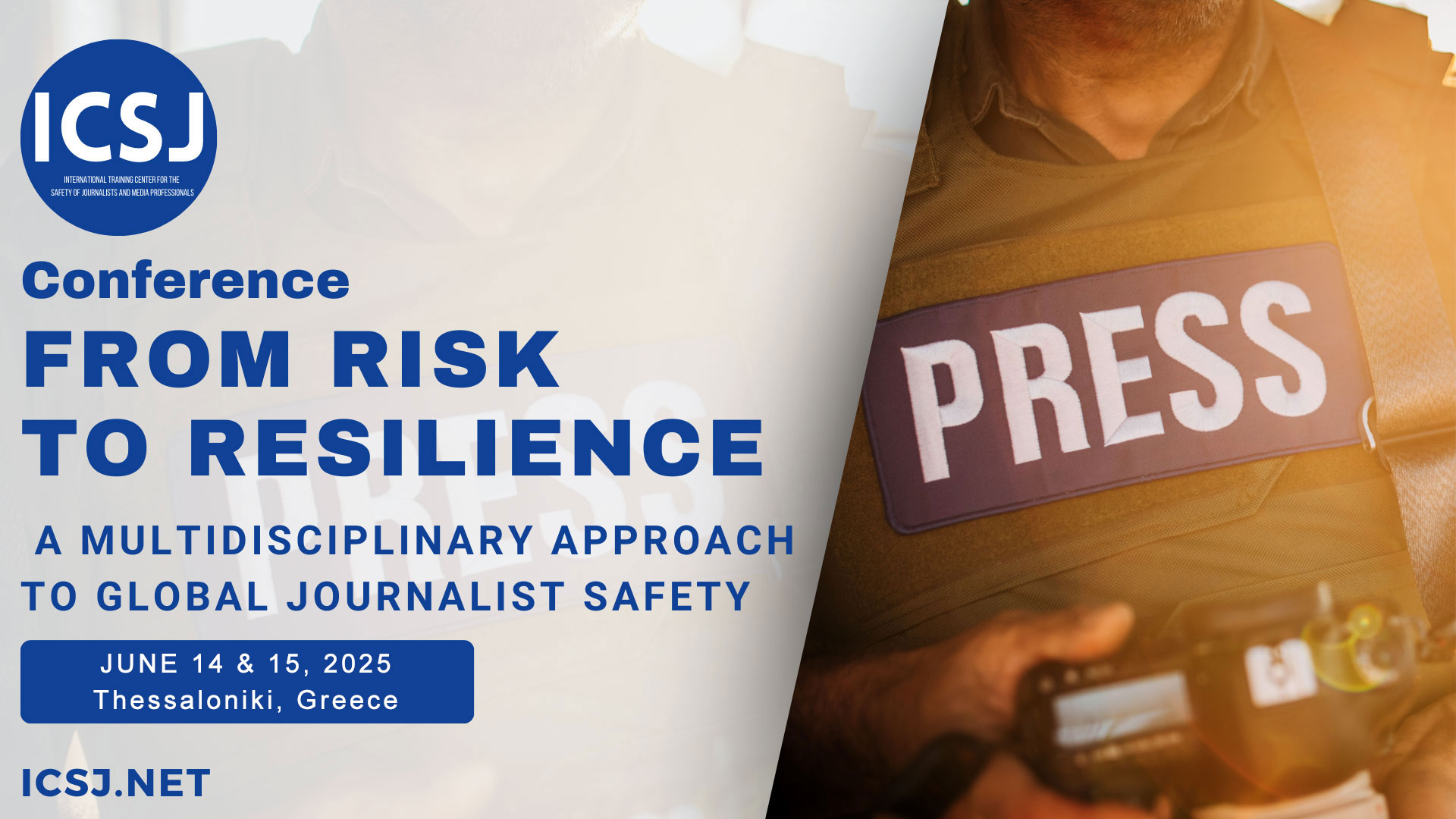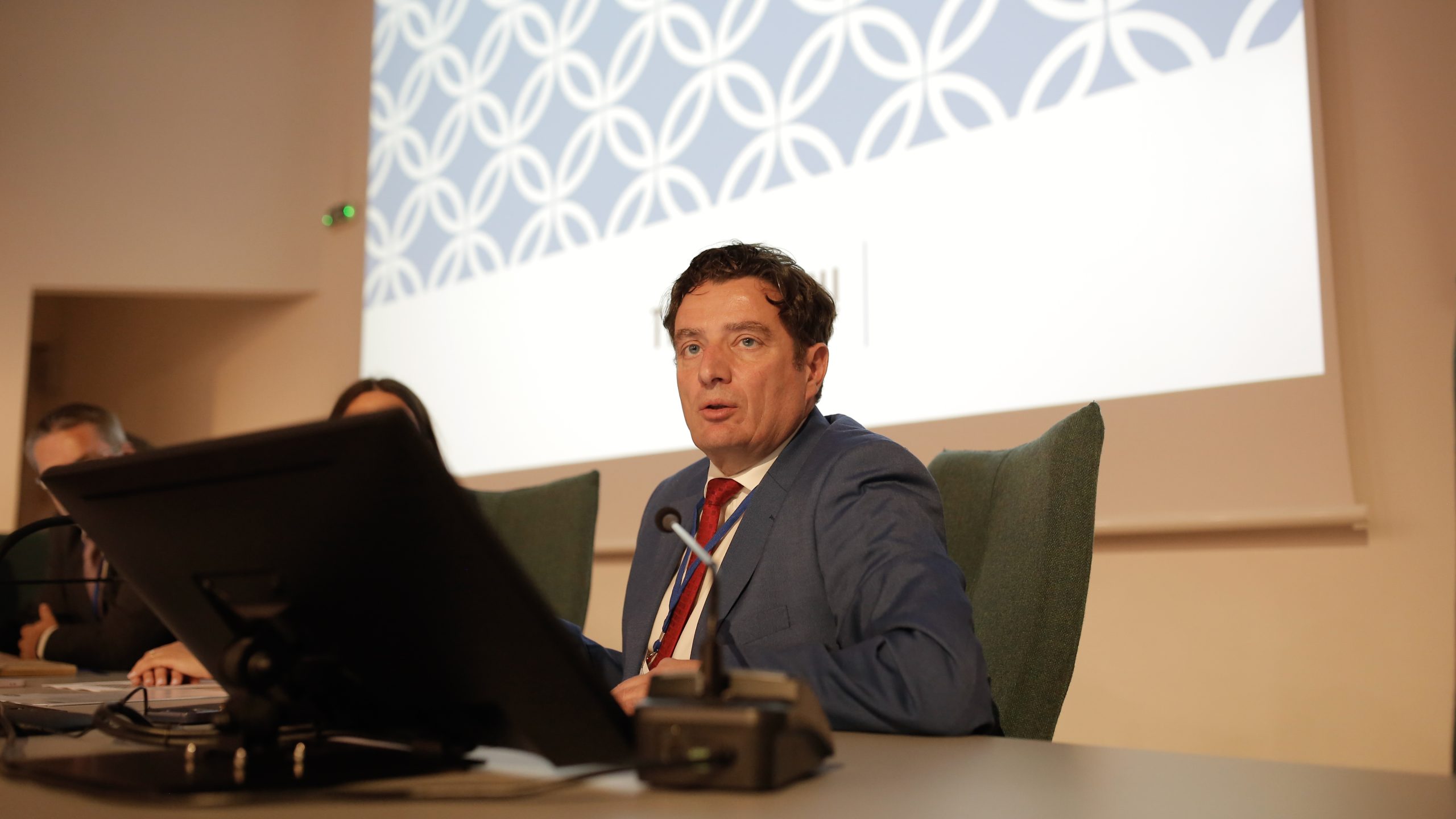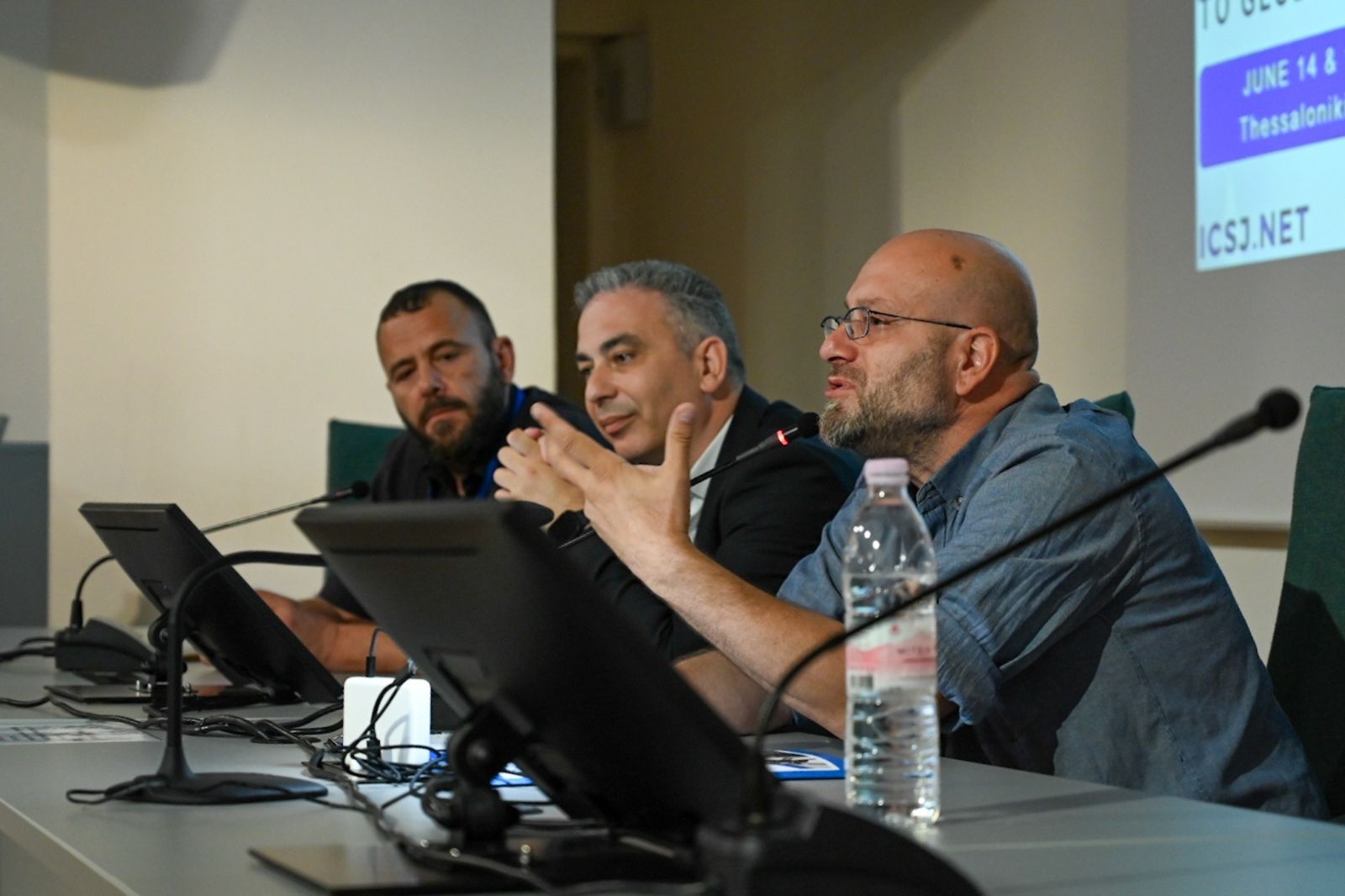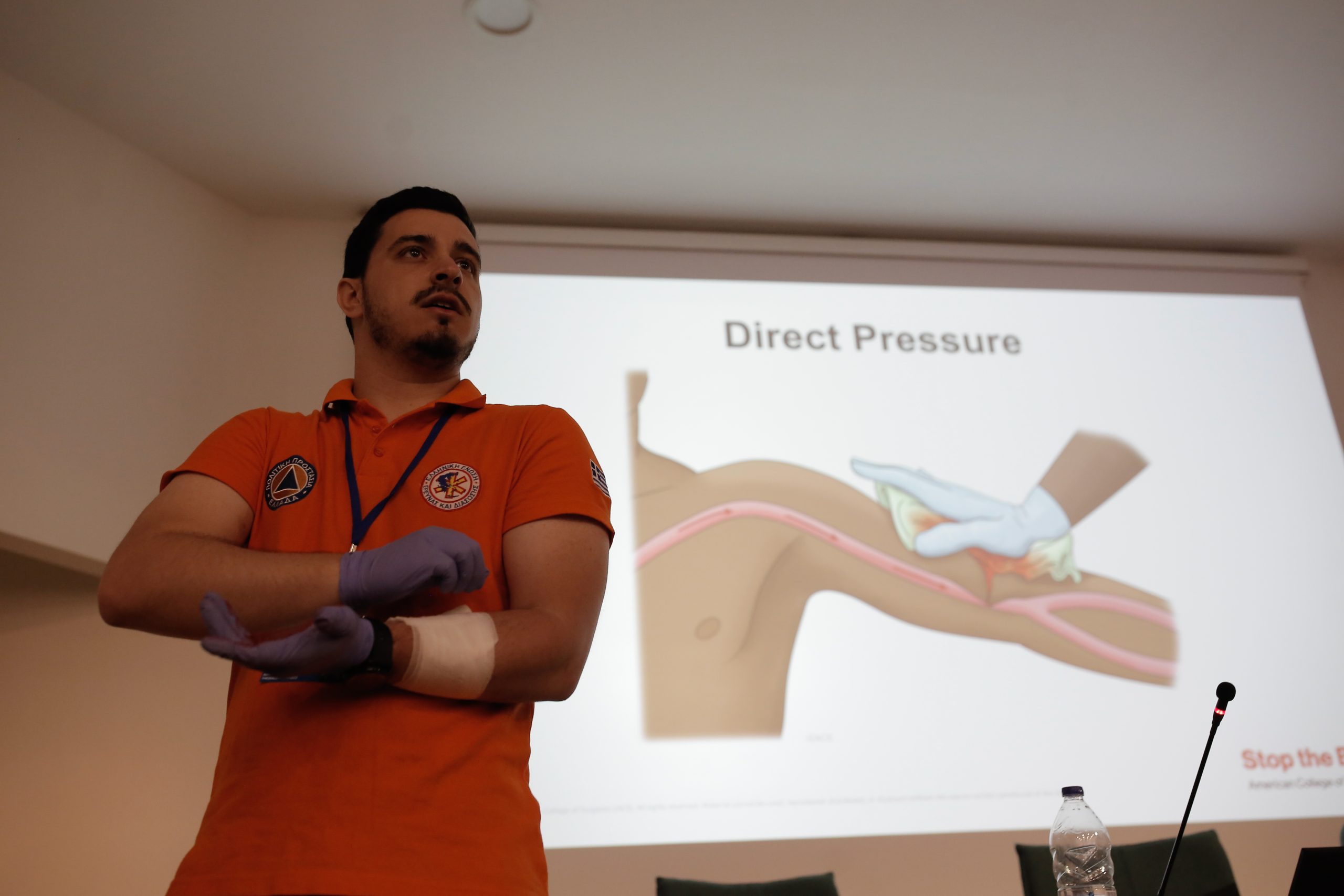The international dimension: UNESCO, OSCE, political will
A key feature of the conference was that it was not the product of a single national initiative, but also a point of convergence for global institutional voices on the issue of journalist safety, where the strong international presence at the institutional and rhetorical level highlighted the need to ensure press freedom and the safety of journalists—two things that can no longer be seen as separate. On the contrary, they constitute the foundations of democratic cohesion and political accountability.
Tawfik Jelassi, UNESCO’s Assistant Director-General for Communication and Information, placed particular emphasis on the threefold approach of “Prevention – Protection – Prosecution”, which forms the basis of the UN Plan of Action on the Safety of Journalists and the Issue of Impunity. With sharp and well-documented rhetoric, he presented the Organisation’s latest reports: “Between 2022 and 2023, 162 journalists and media workers were killed globally. This marks a 38% increase from the previous biennium. Even more alarming: 86% of these crimes remain unresolved.”
According to Jelassi, the most pressing issue now is the adoption of “institutional protection mechanisms that are not limited to occasional training but are integrated into national political cultures.” At the same time, he praised Greece’s decision to host institutional and educational programmes such as the ICSJ, adding: “We commend the ICSJ for its leadership in this area. Its inclusion in the UNESCO Global Repository of National Safety Mechanisms reflects a strong commitment to both national and international standards of journalist safety.”
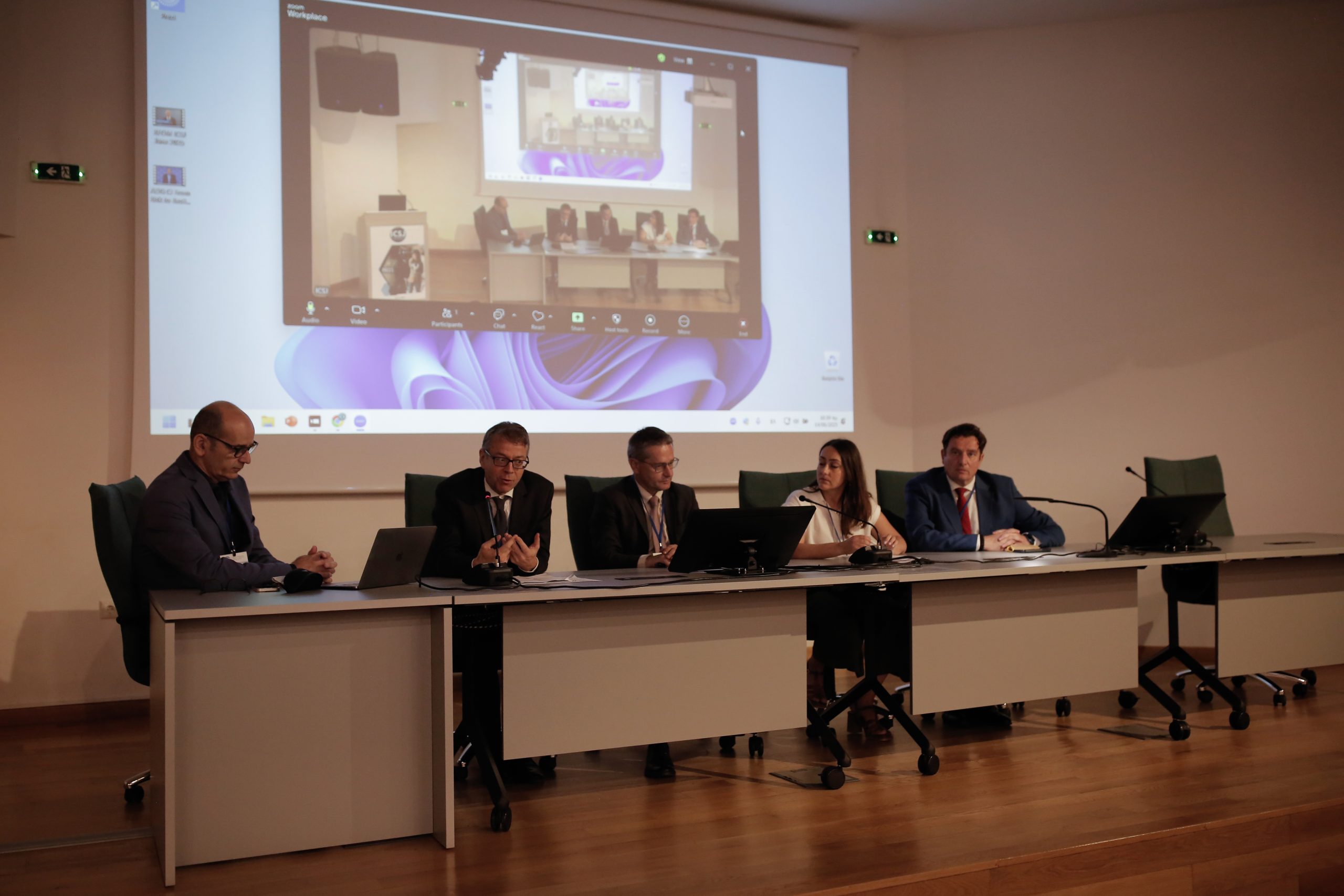
Panel 1: Advancing Journalist Safety: National Policies, Legislative Efforts, and International Cooperation
Moderator: Yannis Kotsifos, Director, Journalists Union of Macedonia and Thrace.
Speakers: Nikolaos Panagiotou, Head, ICSJ, Professor, Department of Journalism and Communication, Aristotle University. Guildo Keel, Senior Advisor to the OSCE RfoM Office. Aikaterini Polyzou, Head of Department for Audiovisual Media & Internet, Secretariat General for Communication. and Media. Nedjeljko Rudovic, General Director Media Directorate Government of Montenegro. ©ICS
On behalf of the Organisation for Security and Cooperation in Europe, Jan Braathu, Head of the Mission for Media Freedom, sent a clear message in favour of political awareness, recognising the escalating threats faced by journalists within OSCE member states: “Across the OSCE region, journalists continue to face an array of threats: from being targeted and accosted when covering demonstrations, to surveillance measures and derogatory campaigns that aim to discredit their role.”
Braathu placed particular emphasis on institutional cooperation with the ICSJ, recognising its importance as a place of education and a symbolic pillar for the legitimisation of the journalistic mission. He stated that, “The safety of journalists is not just about their physical integrity. It is a matter of democratic resilience,” concluding with: “Only safe journalists can contribute effectively to providing the information that citizens need in order to participate in democratic governance.”
Of particular interest was the statement by Tamara Vujović, Minister of Culture and Media of Montenegro, which, with a population of less than 650,000, has more than 200 active media outlets and a lively, though often polarised, public sphere. Despite the structural obstacles and historical challenges in the Western Balkans region, the Minister emphasised the government’s political will to create an institutionally guaranteed environment of security and independence for journalists.”We cannot change all the conditions, but we can build together a system that offers security to those who dare to speak out. We need institutions, not just good intentions” (1).
The Minister also emphasised the importance of cross-border cooperation and common European tools, reinforcing the belief that the safety of journalists is not just a problem for the ‘great powers’ or war zones, but a common European issue that also concerns transitional democracies — where institutions are tested daily and the political protection of information is not a given. The common denominator of the interventions was the need for access to high-quality, reliable data in order to substantiate intervention, dismantle impunity and build policies on solid ground. On this basis, cross-sectoral cooperation and the institutionalisation of accountability were presented not as an ‘ambition’ but as a necessity.
